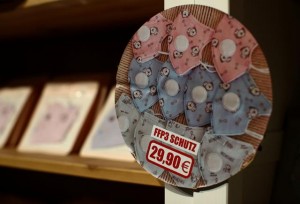The European Commission plans to narrow controls on the export of coronavirus protective equipment to just a single product – masks – as well as exempt the countries of the western Balkans from the restrictions.

The EU executive, which overseas trade policy for the 27 EU member states, set out a draft regulation on Tuesday to apply for 30 days from April 26. The adjustments were designed to meet the EU’s global commitments in tackling the COVID-19 pandemic.
The bloc’s current restrictions apply to protective spectacles and visors, face shields, protective garments, gloves, as well as mouth and nose masks.
These products can only be exported to a non-EU country with an authorization granted by individual EU countries. The restrictions were due to run from March 15 to April 25.
The restrictions came in after a number of countries, including France and Germany, introduced their own export controls, angering fellow members such as Italy that were most in need of such equipment. The EU-wide controls on exports outside the European Union have largely restored flows of protective equipment within the bloc.
Some EU countries have nevertheless maintained export bans on certain medicines.
The EFTA nations – Iceland, Liechtenstein, Norway and Switzerland – as well as various overseas countries and territories were subsequently exempted from the controls.
The European Commission said this exemption would now extend to the western Balkan countries – Albania, Bosnia, North Macedonia, Montenegro, Serbia and Kosovo.
EU countries should also authorize exports of masks in the form of emergency humanitarian aid, it said.
The controls would only in future apply for masks as these were the only category of protective equipment for which export authorization was deemed necessary to secure an adequate supply for Europeans.
The Commission said its new law would oblige EU countries to consult with it when assessing whether to issue an export authorization. The Commission would issue an opinion within 48 hours.
EU countries will be required to report to the Commission on authorizations granted with a view to coordinating efforts to match supply and demand in the European Union.
Reuters



Share your thoughts